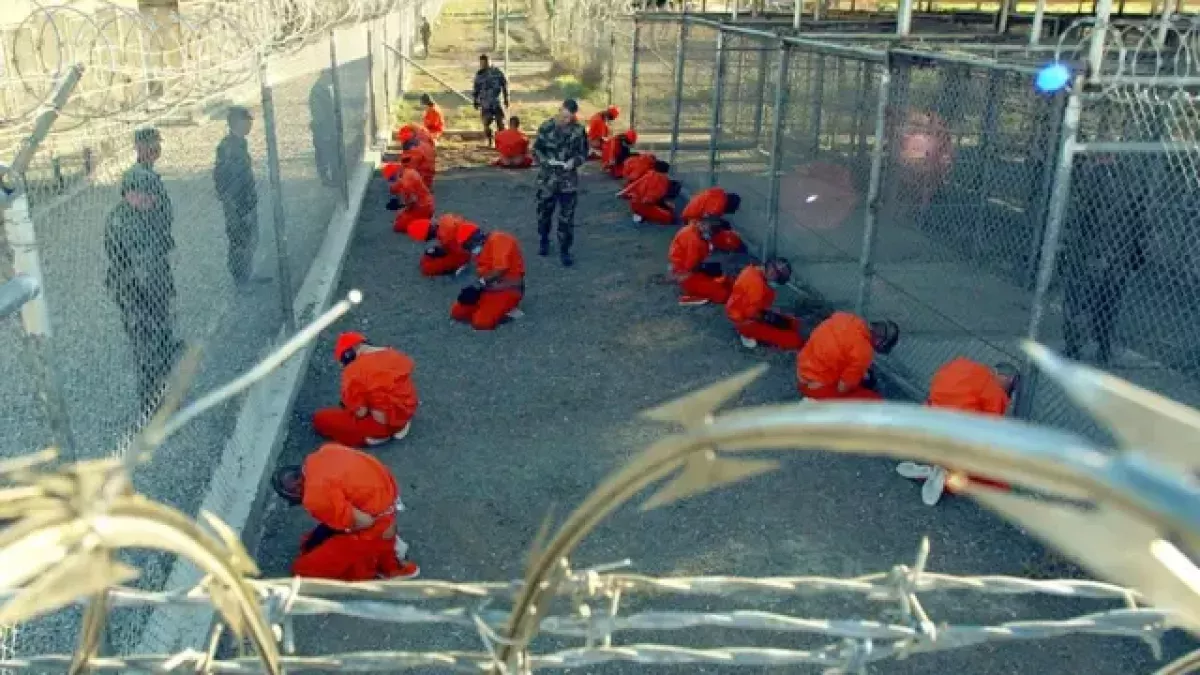US Embassy's misstep: Seemingly the final attempt to sour relations with Baku But What About Guantanamo and Hunter Biden?
The U.S. Embassy in Azerbaijan keeps exceeding all conceivable limits, clearly failing to grasp the simple truth that its duty is to establish relations, not to damage them. Unfortunately, once again, we have seen that, without its proxy resources, the embassy is simply working directly to implement the Biden administration's talking points. It seems that the outgoing U.S. administration has decided to do everything it can to sour relations with Baku in the final weeks of its tenure.
Another twist from their side – a statement whose content exposes the extreme limitations of the diplomatic mission's leadership in understanding what they have heard or seen. Indeed, the embassy's statement mentions that "There’s been a lot of schoolyard bully language directed at imaginary U.S. boogeymen lately." The immediate question arises: if the boogeymen are American, then what is Azerbaijan’s fault? After all, the phrase "American boogeyman" implies that it was created in the United States.

What can be said here? It’s hard to do anything but state the obvious: don’t skimp on translators and literary editors, ladies and gentlemen from the U.S. Embassy. The result of such cost-saving is utterly laughable. By the way, a member of the Press Council's Executive Committee, journalist Azar Hasrat, pointed out that even in Azerbaijani, the embassy writes using “erməni-budaq” sentences. "It feels like you can’t even write properly in Azerbaijani. That’s why you construct Armenianized sentences. We could offer you Azerbaijani language courses," he humorously remarks.
How can one resist irony when the embassy's statement includes the assertion that the "most popular" words in one of Azerbaijan's state TV programs this month were "open blackmail" and "cowardice"? Let's break down what was said, point by point. First, let's look at the words that caused such a stir at the U.S. Embassy in Baku. It is an undeniable truth that the U.S. frequently resorts to open blackmail in its dealings with countries it seeks to pressure. American policy has always been marked by cynicism and hypocrisy. This too is an axiom. For those who doubt, I’d like to remind them that it was the U.S. that became the state whose Congress imposed sanctions not against the occupying country, but against the victim of occupation. This occurred in 1992, when the shameful Section 907 amendment was passed. It came into effect the year Armenia occupied Shusha and Lachin, and the year Armenian militants carried out the Khojaly Genocide. That was the open blackmail directed at our country, which also included annual U.S. financial aid to the Karabakh junta.

For too long, we’ve witnessed openly corrupt and biased American congressmen and senators take actions that go against the national interests of the United States. Just think of the notoriously corrupt Armenian-supporting Senator Robert Menendez, who was convicted of corruption.
By the way, what counts as a bribe? To me, it was the payment for services to Nancy Pelosi, then Speaker of the House of Representatives, for her trip to Armenia in September 2022, which cost Armenians $120 million. If that’s not legalized corruption, then what is? Against this backdrop, even "The Union of the Sword and the Cudgel" by Ostap Bender seems pale in comparison. In any case, this is reckless foolishness on the part of the U.S.—choosing not to back the most economically powerful, truly independent, and growingly influential nation in the world, with the strongest army in the region, but instead supporting the smallest country, which lacks many attributes of statehood and sovereignty and hosts a Russian military base on its territory.
By the way, I won’t miss the chance to make life a bit more difficult for the U.S. embassy staff in Baku, giving what I believe is the most fitting name to what they’ve done by publishing their laughable statement. It’s nonsense. How else can you describe the part of the embassy’s statement that says, “Over 300 political prisoners are in jail in Azerbaijan on flimsy charges and spending the holidays away from their families.”?
Yes, the U.S. diplomatic mission in Baku claims that those they call “political prisoners” are on vacation. If that’s true, then it’s completely unclear how they can accuse our country of anything. Show me another state where prisoners are considered to be on vacation. This certainly isn’t the case in the U.S., where the death penalty still exists. In Azerbaijan, let me remind you, it was abolished back in April 2002.

And one more thing. I must remind the leadership and staff of the U.S. embassy that due to Guantanamo prison, the United States became a country where the principles of the rule of law are not respected. And this is the truth. According to human rights organizations and testimonies from former detainees, prisoners at Guantanamo were subjected to government-sanctioned torture, approved by the U.S. government and president. Furthermore, according to the Pentagon’s position, such treatment cannot be considered inhumane. It is also deemed acceptable to execute prisoners who confessed under torture.
And after all this, the U.S. embassy in Azerbaijan has the audacity to write a denunciation called a statement?! Of course, paper can withstand anything. But is it worth presenting oneself in such an absurd light? Especially considering how outgoing U.S. President Joe Biden decided to pardon his son Hunter, who was accused of illegal possession of firearms and tax violations. The investigation into Hunter Biden had been ongoing since 2018. In 2023, he agreed to plead guilty to tax evasion and illegal possession of a firearm. But later, Hunter Biden withdrew his guilty plea. It’s clear he understood he had a trump card up his sleeve—his father’s right to pardon him. And that’s exactly what happened.
These are the facts. The U.S. embassy can deny them with as much “success” as Bill Clinton once denied his relationship with Monica Lewinsky. The truth eventually came out, in both cases.








